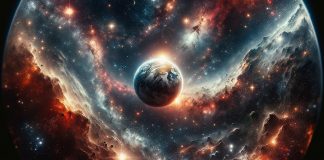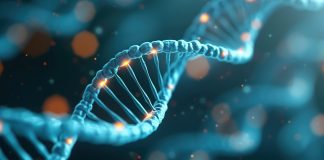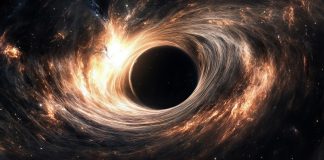Evolution and creation: closer to the core of the controversy
I got acquainted with Ariel Roth as a writer, but I also got to meet him as a human being. I discovered neither fanaticism nor nervousness, neither doubt nor ideological speech in Roth, an octogenarian who still looks in detail at each new subject appearing on the agenda of the debate between evolution and creation. He maintains an unflagging desire for honesty and...
How lethal is COVID-19, and other (un)answered questions
There have now been over 12 million cases of COVID-19 infection globally, and half a million deaths. Researchers are constantly looking for new and better information to reduce the uncertainty around the virus.
Will the metaverse really change the future?
There’s a 1995 clip from The David Letterman Show where Letterman is interviewing Bill Gates. Gates excitedly explains how the internet will change the future. Letterman is sceptical. He mentions a baseball game that had recently been broadcast live on the internet. “Does radio ring any bells?” he quips sarcastically, to laughter from his audience.
The big picture
Fossil layers seem to be consistent with some independent phylogenetic analyses, radiometric dating methods seem to be consistent with inferences based on the DNA "molecular clock," continental drift over millions of years seems to be consistent with the distribution of species and fossils on Earth... and the examples go on. If the evolution of life is not a real phenomenon, how can we...
A new theory of evolution—or several complementary theories?
"Strange as it sounds, scientists still do not know the answers to some of the most basic questions about how life on Earth evolved. Take eyes, for instance. Where do they come from, exactly?" These are the words with which an extensive article published by The Guardian in June 2022 begins.
The risks of overrelying on genetic testing
Genetic testing is a new frontier in preventive medicine. But beyond this border, there lies a minefield of trial and error.
Evolution: Impossible
Dr. John Ashton of Newcastle, Australia, is a compelling example of a serious research scientist who bases his beliefs regarding the origins of the universe and life on the Bible.
Evolution and probability
At first glance, the idea that life could have emerged spontaneously seems to imply insurmountable probabilities. Indeed, simple yet accurate mathematical modelling reveals infinitesimal probabilities, regardless of the length of time available. So, how is the theory of evolution compatible with these mathematical arguments? Is the spontaneous emergence of life the only improbable aspect of the theory?
The redefinition that conquered the world
For Carl Sagan, renowned astronomer and militant atheist, God's place in the universe was certain: "The cosmos is all that is, or ever was, or ever will be." For Richard Dawkins, exponent of the "new wave" of atheism, true science is necessarily atheistic and materialistic. This paradigm dominates the scientific world today.
COVID-19 and our low-risk but endangered children
All COVID-19 statistics lead to the same conclusion: the young ones, our children, are at the lowest risk of getting ill or dying from the virus. That’s comforting. But the pandemic does pose a certain danger to them.
The driving forces of evolution
Even those least familiar with evolutionary theory know that it involves a powerful driving force: natural selection. However, as we delve deeper into the theory, we find that things haven't been that simple for a long time. This is because we no longer consider natural selection the sole engine of evolution, and from a certain point of view, not even the most powerful...
A lesson in natural sciences
The red horizons are shattered. But much more subtle dangers loom for the present and the future. In most Christian countries, theology has declared a truce with evolutionary atheology and has devised a foolish and deadly compromise that is neither atheism nor true Christianity.
God and the onion test
Humans have only a fifth of the genetic material of an onion, and slightly more DNA than a mouse. Why would the Creator of life use five times more genetic information for an onion than for a human? And why would He create humans to be only slightly more genetically complex than mice? Aren't long and aimless evolutionary processes a better explanation for...
The evolution of the eye
The eye's intricate structure has long been a focal point in the creationism vs evolutionism debate, serving as a key example in the argument of irreducible complexity. More recently, methods of simulating the evolution of the eye have emerged, which claim to provide significant support for Darwinism. Who is right?
Evolution before our very eyes | Part 2
Bacteria are becoming increasingly resistant to antibiotics; some butterflies and fish are developing new colours for better camouflage; and a series of laboratory experiments have revealed small but significant changes in various microorganisms. Are these phenomena conclusive evidence of evolution unfolding before our eyes?


























